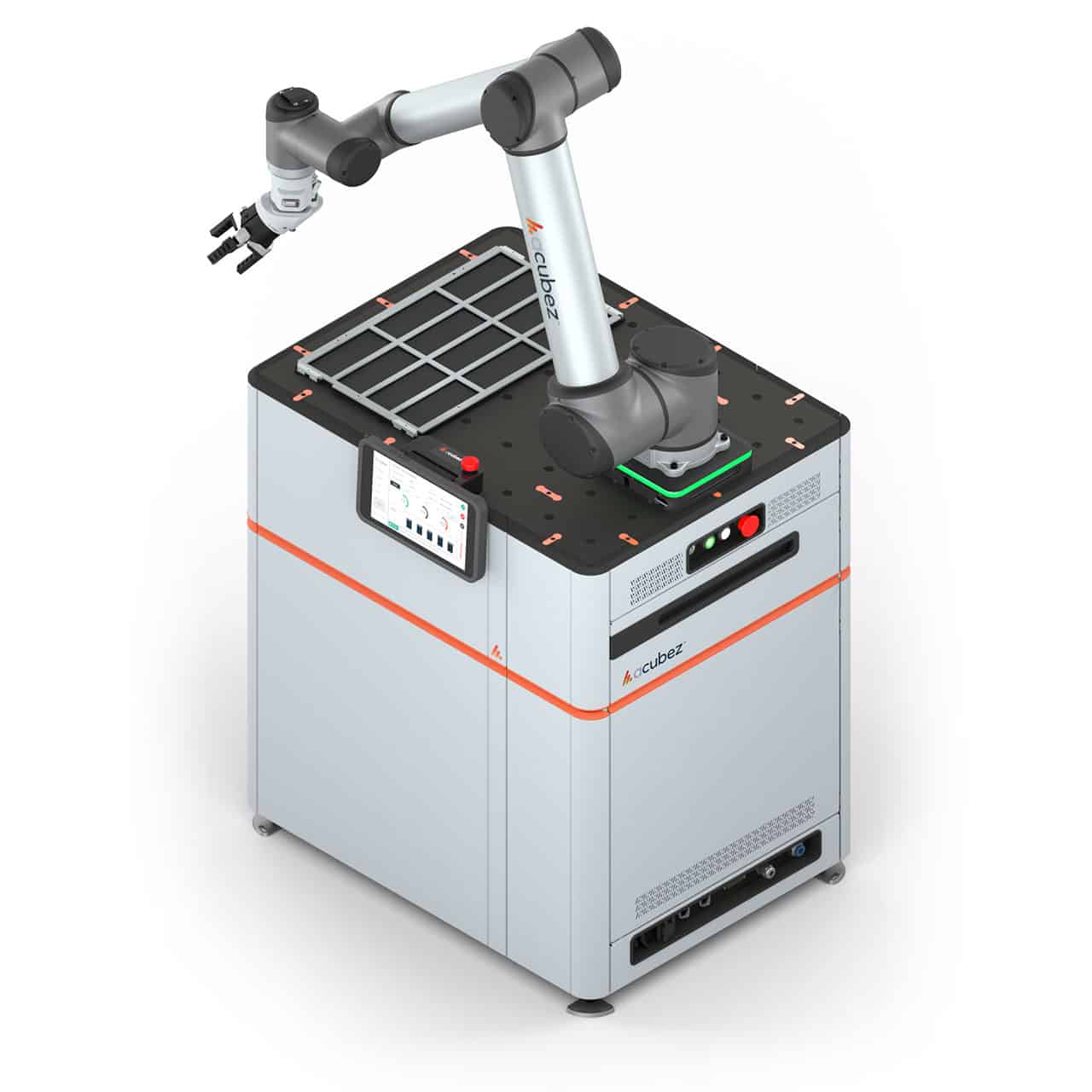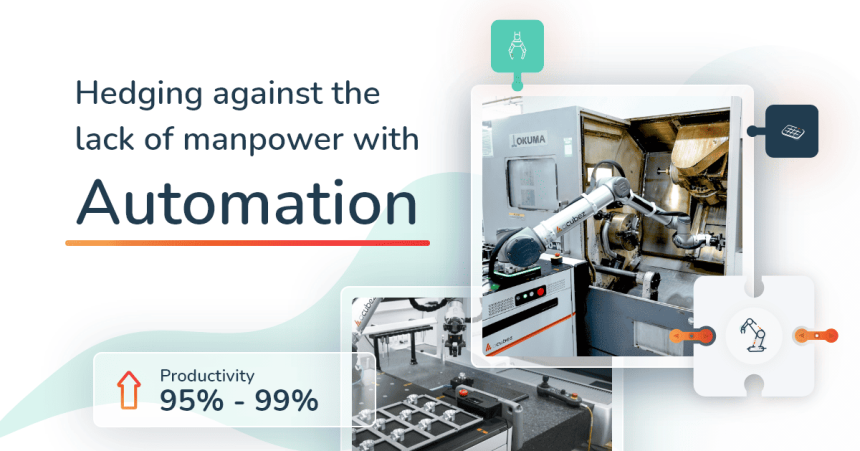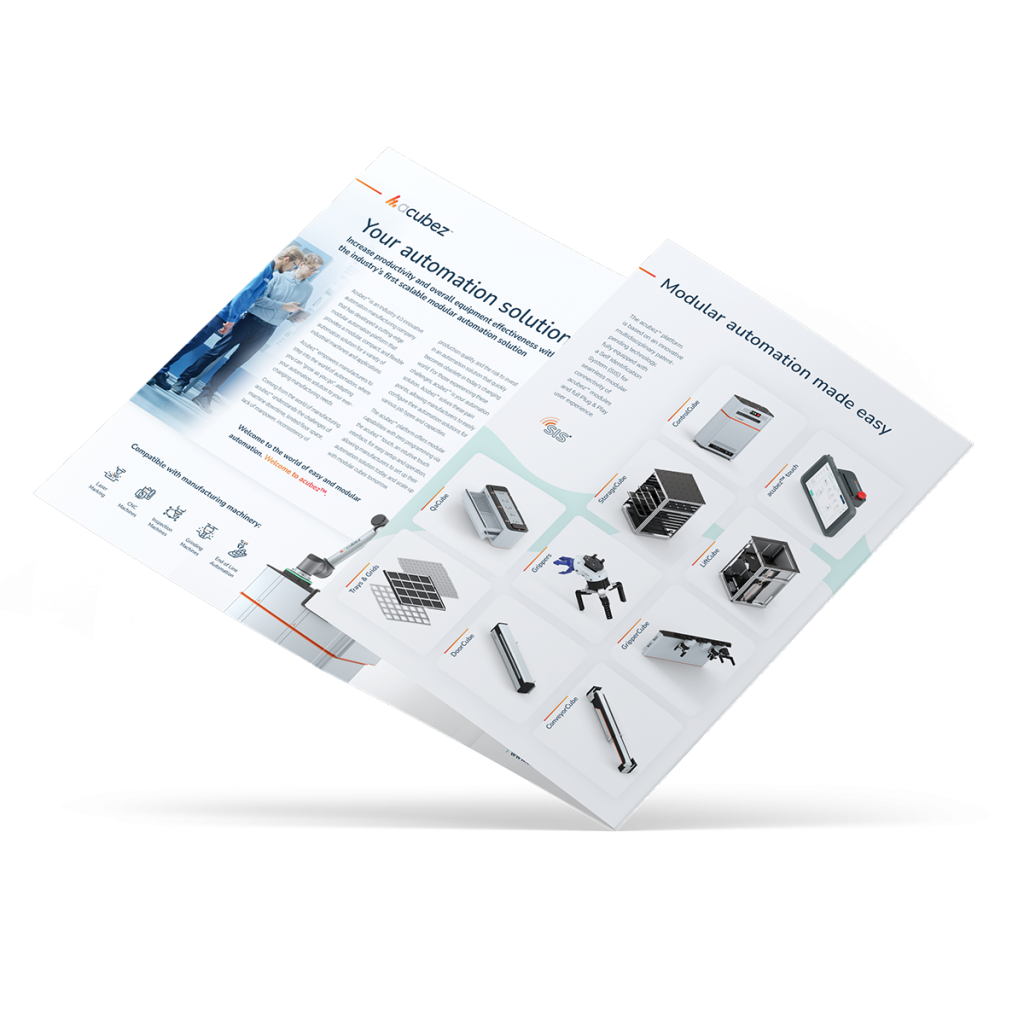Covid-19 has caused significant restraints on domestic and international trade. With massive governmental lockdowns and hindered productivity, manufacturing business owners and managers are struggling to fulfill orders due to manpower shortage. Omicron has proven to be manufacturers’ most recent threat to company survival and job delivery, compounding the global labor shortage that has been consistently increasing in the recent decade.
The pandemic has led to increased infection risks on factory floors, leading to the sharpest global labor shortage in the new industrial era. Productivity plummets, and machines are left unattended as workers are forced to remain at home.
Thus, industrial automation has proven more opportune than ever before. With record numbers of new robot cells being shipped, manufacturers are hurdling over the barriers to entry to automate their machine tending processes.
Increased labor costs demand greater productivity and profitability
As the supply of quality labor falls, the demand for qualified workers remains at an all-time high. While manufacturers are forced to raise wages, passing these inflationary prices on to the consumer, factory owners still must absorb a portion of the loss.
Recently stated by a high-mix, low-volume manufacturing CEO, “The challenge to both hire new laborers while managing the rising number of infected employees is nearly enough to shut our doors for good. The lack of manpower has left our machines with higher downtime than ever before, unattended for hours. At one point, nearly 50% of our factory workers were home in quarantine.”
To overcome this loss in productivity, many companies who are struggling to maintain their profitability and laborers are embracing automation and the technologies of Industry 4.0. Automated machine tending solutions dominate the new methodology of driving more productivity, while Covid-19 disarms the classic models of scaling, or simply maintaining manufacturing operations.
By providing investment-proof opportunities, greater flexibility, and even scalable modularity, the market’s end-to-end solutions are proving to be a manufacturer’s greatest refuge amidst growing labor supply shortages (both during and post Covid-19).
Faster deployment methods make manufacturing automation more attractive
Among automation’s greatest benefits for manufacturers is the faster deployment method for helping to fit shorter product lifecycles. With profitability directly correlating with a manufacturer’s ability to recoup capital expenses from right-sizing equipment for the expected lifecycle, the opportunities presented by automation’s faster deployment prove to be very attractive.
While Covid-19 has limited manufacturing productivity and expansion, it has not relieved the demand for short product lifecycles and narrow windows. The need to gain a return on investment for costly manufacturing equipment forces manufacturers to choose their automation solutions wisely, avoiding rigid and overly complex systems.
Thus, modular automation solutions have entered the market with high demand by providing manufacturers with numerous benefits. In essence, a modular automation platform is designed to allow manufacturers to purchase a starter configuration to begin CNC machine tending processes while allowing them to purchase individual modules to scale up their solution as needed.
Modular automation case study: Manufacturer A, with medium-size manufacturing lots, purchases the acubez™ 1000 starter configuration today to begin automating his machine tending processes. With a footprint of L1050 x W650, the configuration easily enters the existing factory’s floorplan to begin automating upon arrival. Two months later, the manufacturer begins a new job that requires a high rate of quality sampling. To automate the process of setting samples aside at the required rate, the manufacturer easily self-installs the QaCube; a sampling shelf that communicates with the system’s brain to notify operators once parts are ready for inspection.
This case study is a single example of dozens of applications, alterations, and expansions offered by modular automation platforms. The increased productivity and profitability benefits are gaining more attention across Europe and North America, where small to mid-sized manufacturing companies are seeking incremental investment in automation. Even more so, high-mix, low-volume manufacturers are among the leading adopters to realize the increased ROI from scaleable solutions.
An additional upside for high-mix, low-volume manufacturers
Among industry segments, high-mix, low-volume manufacturing best illustrate the financial impact of deployment methods and lifecycles. Manufacturers producing these low quantities are forced to scour the automation market for a highly flexible, end-to-end solution that will provide machine tending automation for a variety of machines (ie. CNC, laser marking, end-of-line, and inspection) within a moderately short period of time. For these manufacturers, modular automation has proven to maintain the top position in solving Covid-19 labor shortage issues by providing fast deployment and high flexibility that serve shorter product lifecycles.
Benefits of modular automation
- Modular automation platforms arrive ready to plug & play
- Fabrication takes place off-site, not on the factory floor
- No need to move manufacturing machines to open floorspace
- Pre-assembled and pre-tested solutions
- No setup of safety fences or laser-based safety solutions
Conclusion
Amidst the labor shortage crisis brought on by Covid-19, there has never been a better time for manufacturers to explore the possibilities of automation. Recent trends in collaborative robots and modular automation shipping prove that business owners are adopting these democratized technologies with expectations of high ROIs and increased productivity. Increasing numbers of small to mid-sized manufacturers continue to discover how the modular automation segment of Industry 4.0 helps to hedge against labor shortages while enabling them to expand their production capacity and profitability.
About acubez™ modular automation platform
Acubez™ is an Industry 4.0 innovative manufacturing automation company providing an end-to-end solution for high-mix, low-volume manufacturing with its cutting-edge modular automation platform. With compact, flexible, and scalable solutions for increasing productivity, acubez™ enables manufacturers to automate CNC machine tending today and scale up tomorrow. Download the acubez™ product catalog now, or request a quote here.
Footnote


